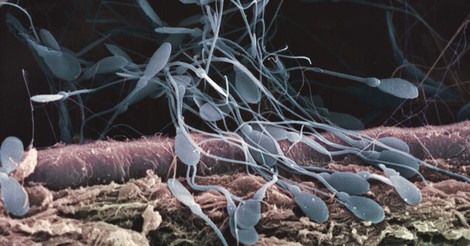Your podcast discovery platform
Curious minds select the most fascinating podcasts from around the world. Discover hand-piqd audio recommendations on your favorite topics.

piqer for: Global finds Technology and society Health and Sanity
Nechama Brodie is a South African journalist and researcher. She is the author of six books, including two critically acclaimed urban histories of Johannesburg and Cape Town. She works as the head of training and research at TRI Facts, part of independent fact-checking organisation Africa Check, and is completing a PhD in data methodology and media studies at the University of the Witwatersrand.
The Myth Of Super Sperm (And What Really Influences Human Fertilization)
Anyone with a passing familiarity with human (or even mammalian) reproduction will be familiar with the idea of a sort of 'Sperm Olympics' – the narrative that only the fastest and fittest spermatozoa manage to make their way past the vagina and through the cervix, with the lucky survivors left to 'fight' over which one gets to approach and fertilize the passively waiting ovum. It sounds almost like the plot of a Hollywood movie, with unsurprisingly gendered roles for the sperm ('male' and therefore aggressive, pro-active, and macho) and the ovum (feminine, passive, nurturing). But, just like many Hollywood movies, this super sperm narrative is not entirely based on fact.
In this essay, published at online anthropology magazine Sapiens (originally published on Aeon), biological anthropologist Robert D. Martin critiques the notion of 'badass' sperm, explaining the inaccurate and gendered history behind the myth before going on to explain how, in fact, successful reproduction is almost entirely a lottery for male gametes. Martin then adds, in some detail, how the female physiological environment plays a far more important role in containing, eliminating, and driving the passage of sperm than may commonly be known. Martin ends by saying that, because of the pervasive macho-male bias that spawned so many misconceptions about conception in the first place, we often tend to ask the wrong questions or research the wrong areas of these processes.
